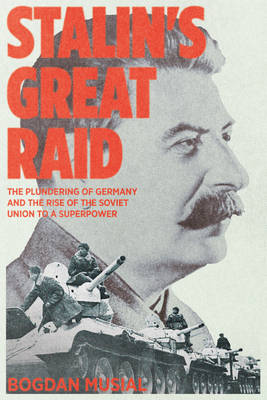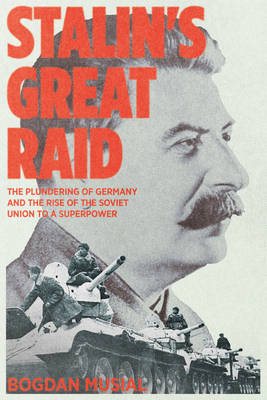
- Afhalen na 1 uur in een winkel met voorraad
- In januari gratis thuislevering in België
- Ruim aanbod met 7 miljoen producten
- Afhalen na 1 uur in een winkel met voorraad
- In januari gratis thuislevering in België
- Ruim aanbod met 7 miljoen producten
Omschrijving
When the Red Army advanced into Central Europe in 1944-45, its battlefield victory marked only the beginning of a vast Soviet project of domination and extraction. Behind the language of "reparations," Stalin and his planners initiated one of the most sweeping programs of industrial plunder in modern history. Entire factories, whole industries, research institutes, rail networks, and cultural infrastructure were dismantled and transported eastward, along with tens of thousands of German engineers and specialists, as well as millions of German prisoners turned workers, all constituting the material and human basis for the USSR's subsequent transformation from a ravaged wartime power into an industrial and military superstate.
In Stalin's Great Raid, distinguished Polish-German historian Bogdan Musial, drawing on never before seen declassified Soviet and Polish archives, offers the first comprehensive reconstruction of this vast transfer of wealth and technology. He situates the looting of Germany within the grim historical cycle that began with Germany's sponsorship of Lenin's revolution and continued through the industrial cooperation that had armed the very Soviet power which would ultimately devour its creator.
A major work of archival history, Stalin's Great Raid reframes the entangled destinies of Moscow and Berlin, transforming our understanding of how the Second World War ended, and how the Soviet Union rose from the ruins.
Specificaties
Betrokkenen
- Auteur(s):
- Uitgeverij:
Inhoud
- Aantal bladzijden:
- 264
- Taal:
- Engels
Eigenschappen
- Productcode (EAN):
- 9781945649738
- Verschijningsdatum:
- 14/04/2026
- Uitvoering:
- Paperback
- Formaat:
- Trade paperback (VS)
- Afmetingen:
- 152 mm x 229 mm

Alleen bij Standaard Boekhandel
Beoordelingen
We publiceren alleen reviews die voldoen aan de voorwaarden voor reviews. Bekijk onze voorwaarden voor reviews.









